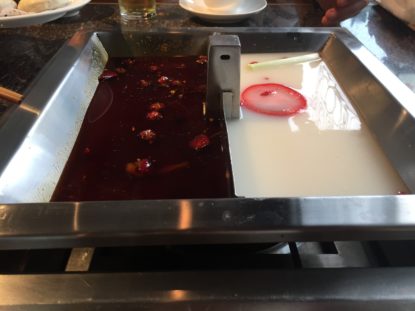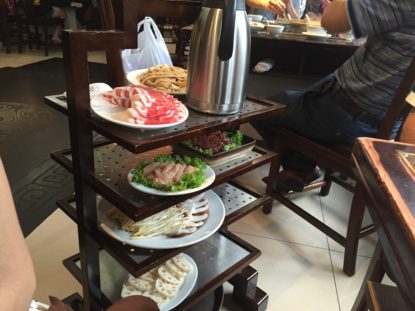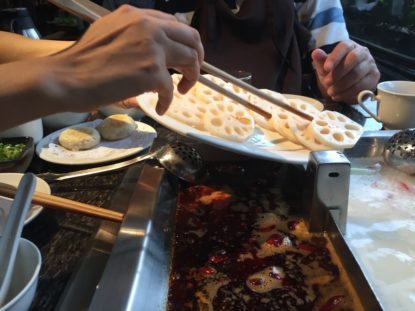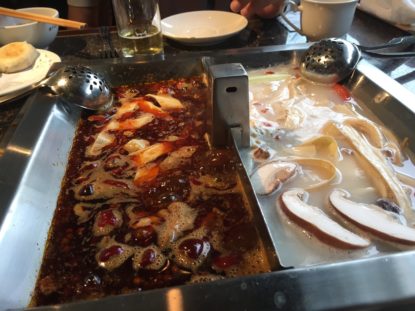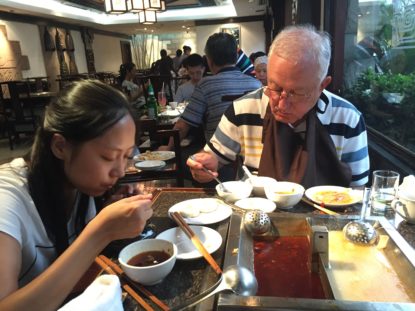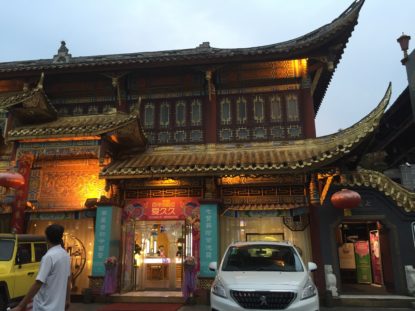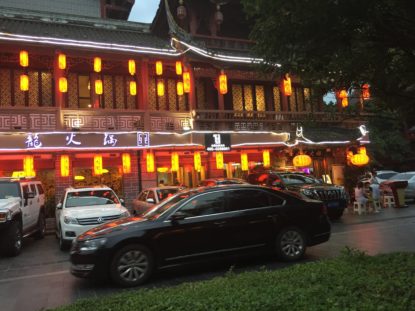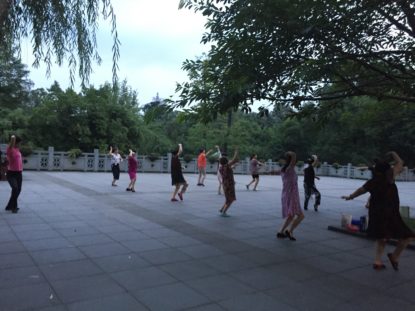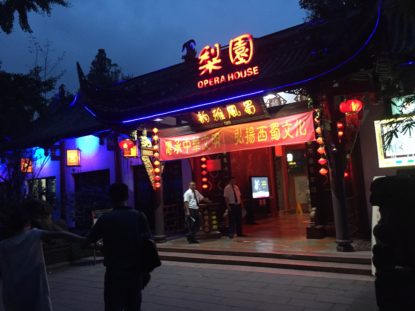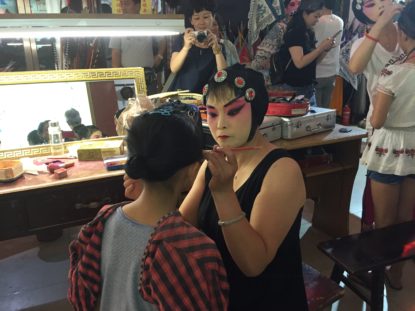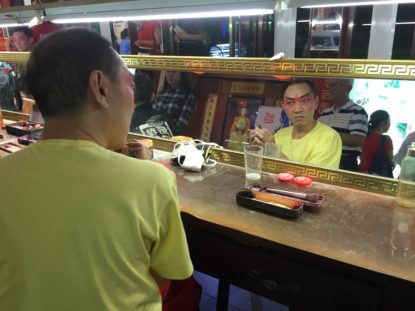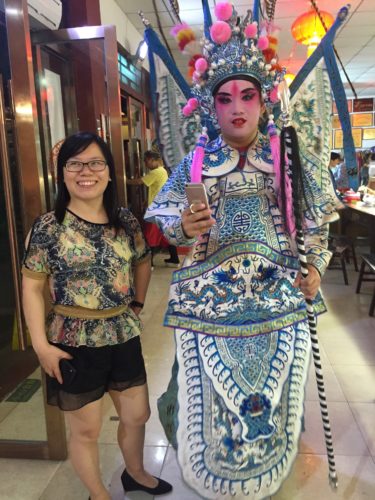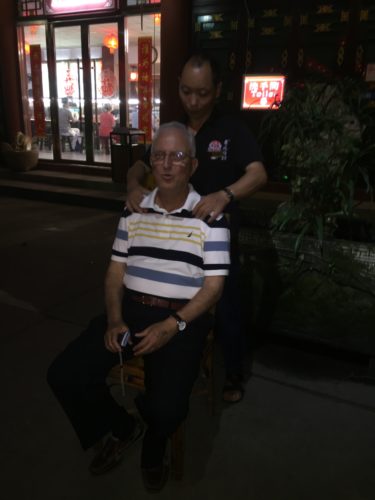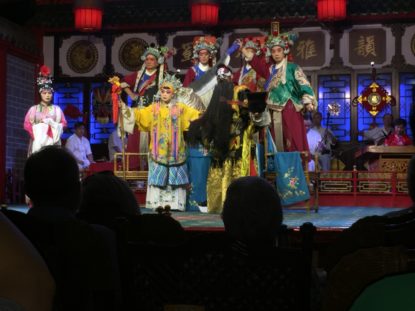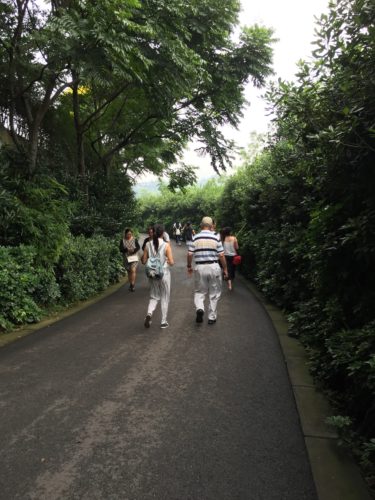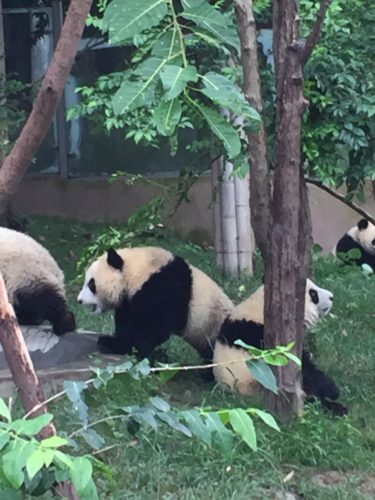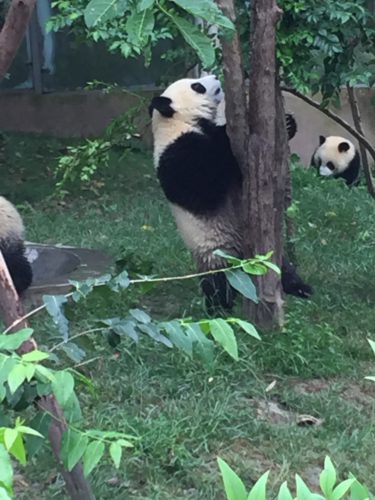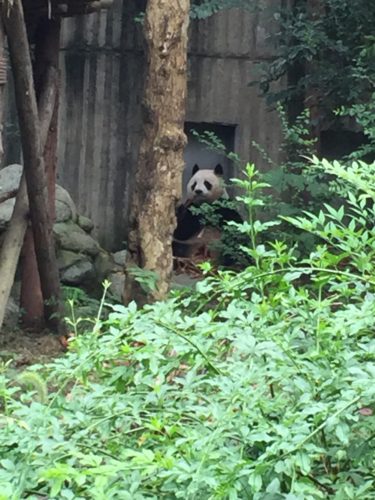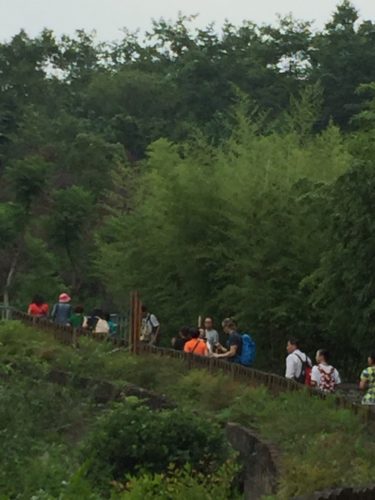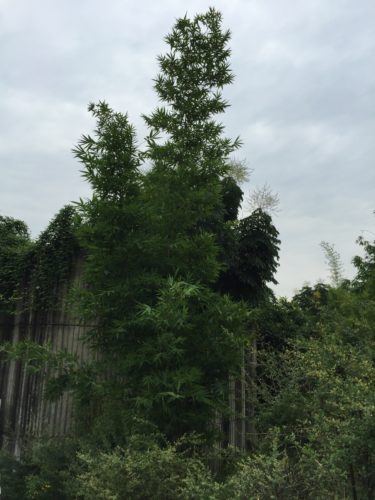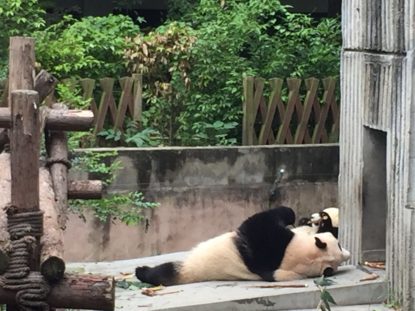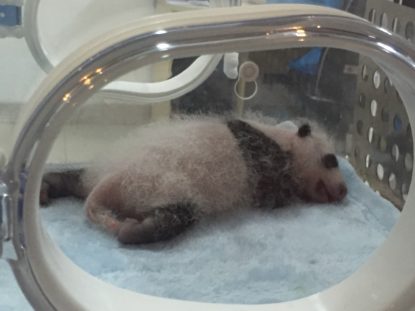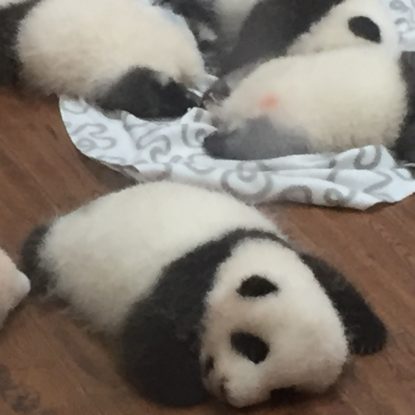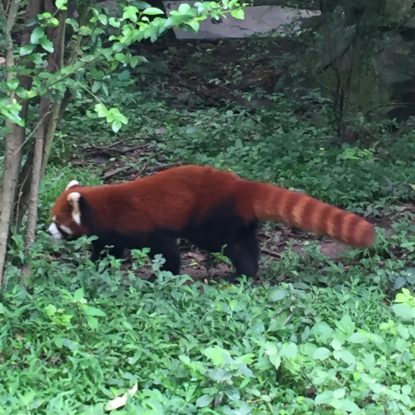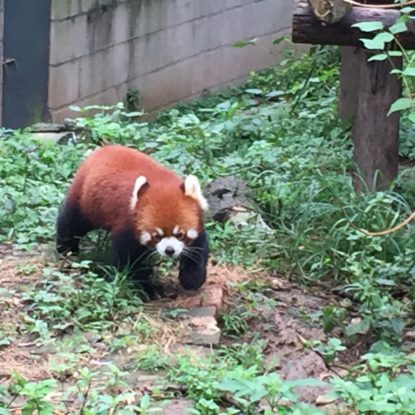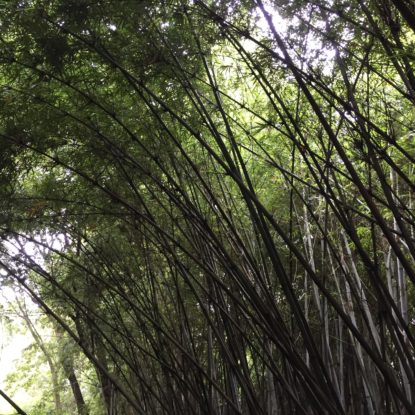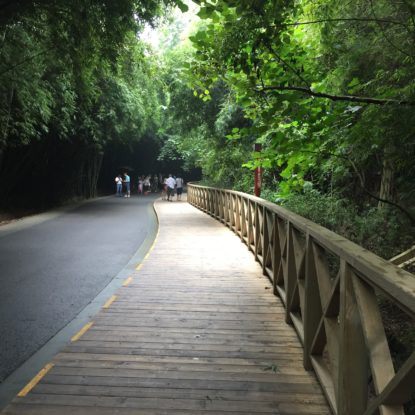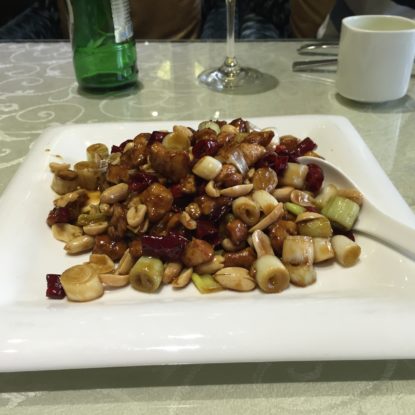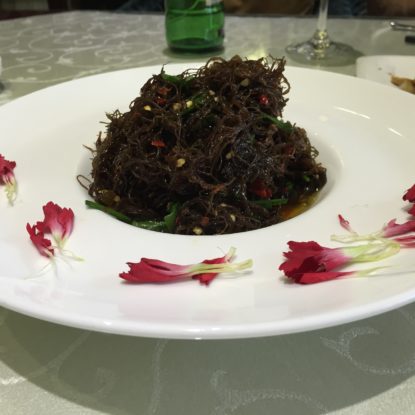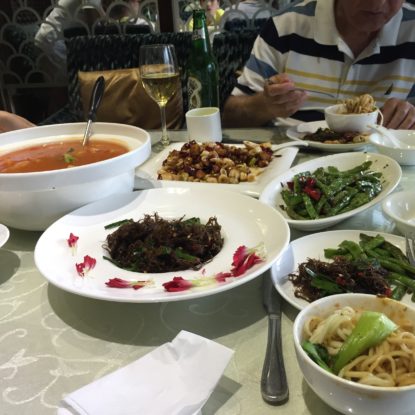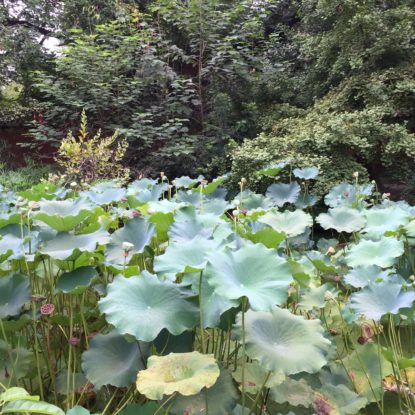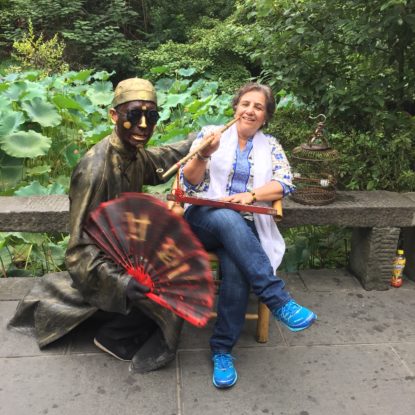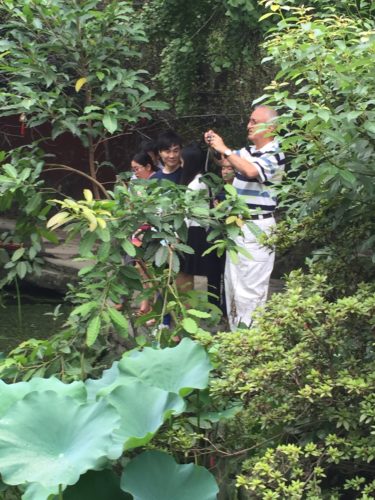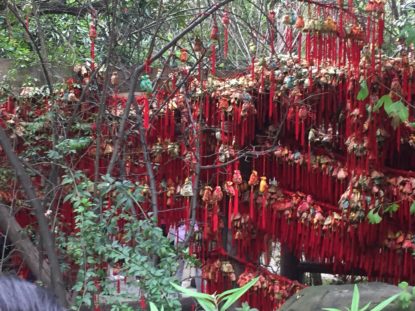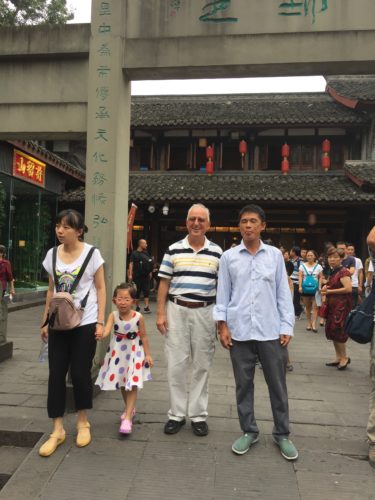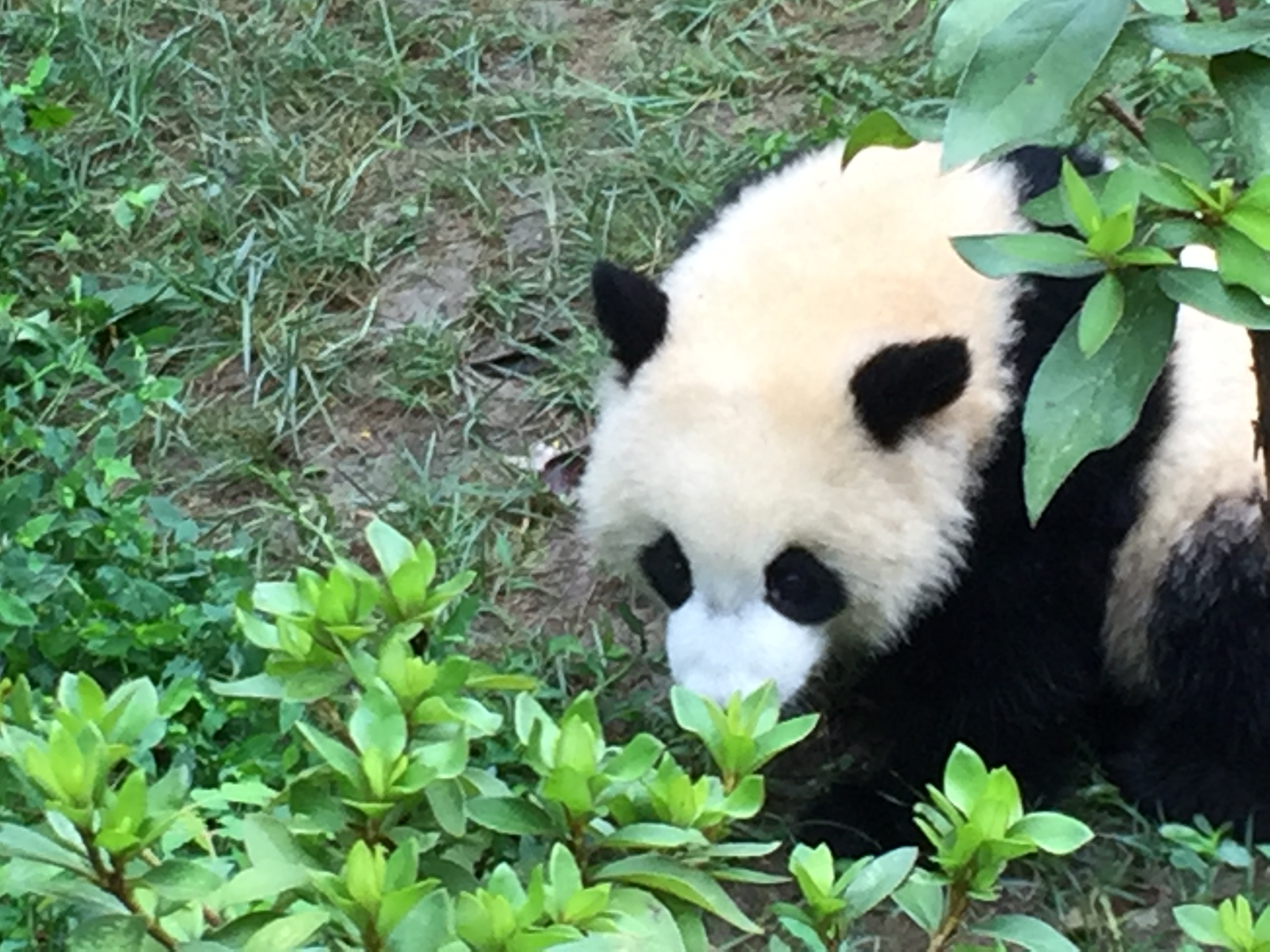
Chengdu: Home of Panda Bears
Xiaoli Wan (Kitty), our guide in Chengdu, checked us in to St. Regis Hotel. From the expansive window in our room we had a view of the recently constructed skyscrapers. She waited for us in the lobby to freshen up and drove us for a hot-pot dinner. At the restaurant, a waiter brought a container with two gravy sections, one pepper hot the other milky. She lit the lights underneath the rectangular cooker/server. When the liquids started to boil Xiaoli dropped vegetables and meats in batches. It took just a few minutes for slices of lotus root, mushrooms, and pieces of beef, chicken, and shrimps to cook. The Sichuan gravy was flaming hot but the milder gravy complemented it.
Our next stop was Chengdu Opera. The time was dusk. From the restaurant to the theatre we walked through a picturesque park, lotus floating over the water surfaces, weeping willows reflecting next to the blossoms and families taking an after dinner walk. At several open spaces groups of women were dancing to recorded music that flowed like tia-chi moments than disco beats. They were neighborhood women who were mostly retired. In China women retire at 50 and men at 55. Every day after dinner they dance, our guide informed us. Did anyone watch television? ‘Most find it boring’, she said. ‘Men may not dance but they play mahjong or watch their wives dance and drink unlimited cups of hot green tea.’
Opera show was more like what we call variety show. The tickets included a choice of back and neck massage, make-up like actors or cleaning ears! We got our backs massaged. The show included musical groups, solo musicians, comedic skits, shadow puppet and acrobats.
We slept soundly that night.
Next morning we were at “White Panda Rehabilitation Center and Museum.” Here scientist and veterinarians have, in twenty years, helped increase the population of white pandas from scarce 6 to 146. In 1989 the indigenous pandas were almost instinct. However, the climate of the city suits pandas well. Its heat and intense humidity produce lush bamboo that is the only plant pandas eat. In Chengdu’s soil grow twenty-eight varieties of bamboos. The lush growth of bamboo trees and bushes was luxurious. Undulating walkways were flanked by the groves. We ascended and descended several walkways and stairs, sweating profusely.
The newborn panda is only 100-150 grams helpless creature. For the first two years it needs to be nursed and nourished. Every fourth pregnancy of a female panda results in the birth of a twin. The mother suckles only the healthier one. The weaker one is neglected to the extent of losing his life. At the Rehabilitation Center newborn are nursed until the age of one to two when they can take care of themselves. Full-grown pandas weigh 100-150 lbs.
I never thought baby pandas would be so adorable. The way they move, roll in mud, climb trees, play with one another, doze off leisurely under the sun is a pleasure to watch. By the time they turn five they lose their interest in companionship. As adults they become solitary animals and like their space. Sitting by himself, I saw one panda peel, cut, chew a bamboo shoot, they way I ate sugarcane. Deeper into the growth we spotted red pandas—smaller, swifter and with long tails.
After a lunch break we drove to a famous market where we walked through a marvelous recreation of a second century Han Dynasty market. Silk fabric and embroidered shoes, panda toys, ceramic and bamboo handicrafts, mounds of tealeaves, spices and herbs were at display. Ceramics tea sets and jade statues were being sold. Teashops, and eateries called us to enter.
In the middle of the market was a large pond with lush blossoms of lotus, lotus leaves and lotus pods. On the bank of the pond acrobats and magicians performed their artistry. Our senses of sight, sound and smell were stimulated as to fully awaken us. At the end of our walking, haggling, bargaining and shopping we ended up drinking coffee at Starbucks.
That night we ordered room service and went to bed early because we had an early morning flight to Shanghai.
